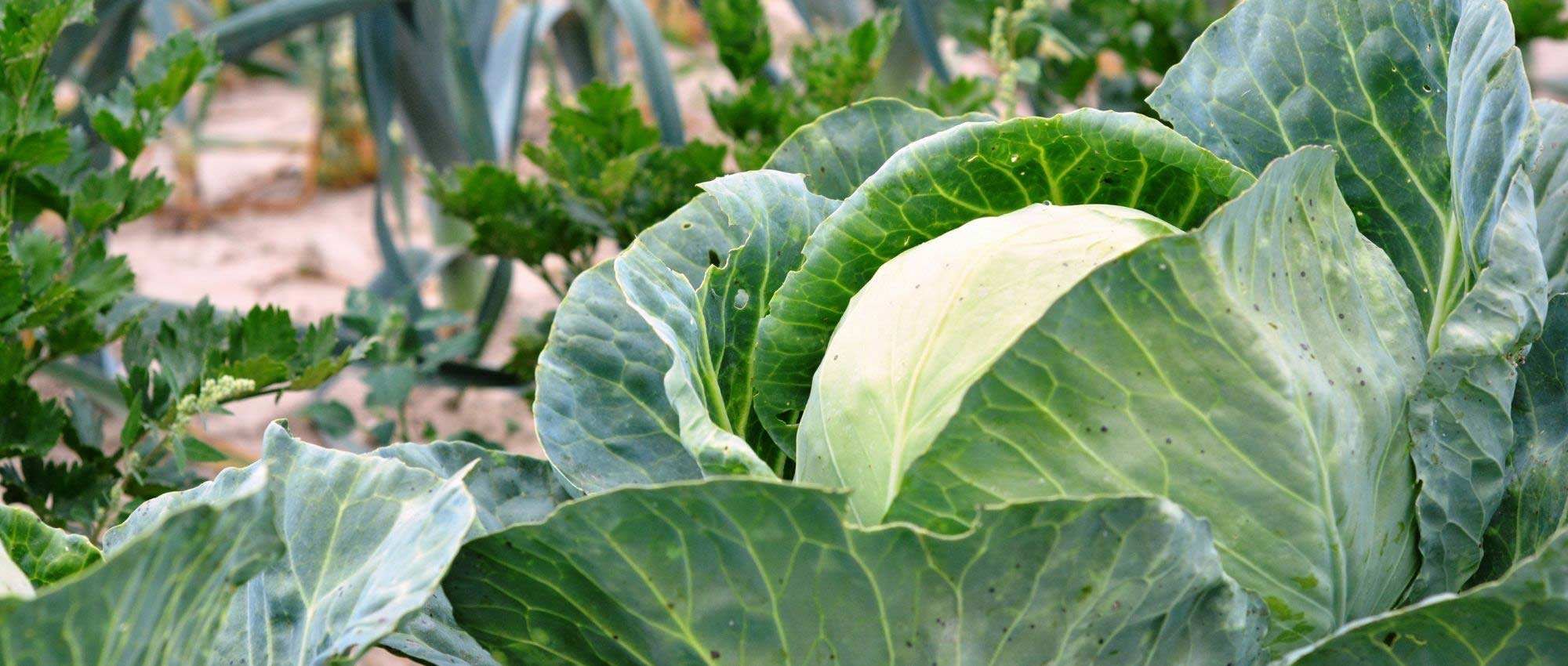
Vegetable garden fertiliser: how to choose?
Depending on your situation and the vegetables you grow
Contents
To produce generous harvests, vegetables grown in vegetable gardens generally need soil rich in mineral nutrients. Ideally, add compost, but sometimes it is not available in sufficient quantities, and additional applications of fertiliser can be useful. They provide plants with all nutrients they need to produce tasty vegetables and generous, abundant harvests. They also make plants more resistant to disease.
Plants mainly need three elements: Nitrogen (N), Phosphorus (P) and Potassium (K). They also need, to a lesser extent, secondary elements and trace elements. Fertilisers can also include stimulators relating to root growth. They come as spreadable granules, sticks or liquid fertilisers. They can act quickly, as a short-term boost, or have a long-lasting effect (for example base fertilisers or slow-release fertilisers).
In all cases, it is important to follow recommended doses. Excess nitrogenous fertiliser makes plants more fragile and more susceptible to aphids and disease. Overdosing fertiliser can also burn plants’ roots. It also harms mycorrhizae, fungi that associate with plants and promote absorption of water and mineral nutrients.
Discover in this fact sheet which fertiliser to choose for vegetables you grow and which formulation best suits your needs.
Which fertiliser to choose based on the vegetables grown?
Mineral elements that make up fertilisers each have a different role in plant growth. Nitrogen favours foliage, phosphorus favours the root system, while potassium influences flowering and fruiting, also making plants more resistant to disease.
These include cabbages, lettuces, spinach, leeks… These vegetables have higher needs for nitrogen, since this element promotes photosynthesis and growth of the above-ground parts of the plant, notably foliage.
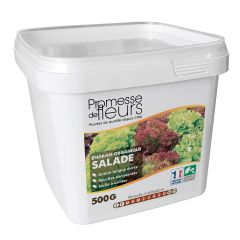
Promesse de Fleurs Fertiliser for salads and leafy vegetables 500g box
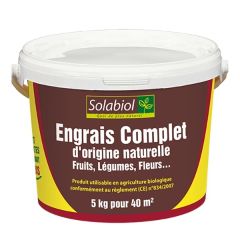
Engrais complet utilisable en Agriculture Biologique
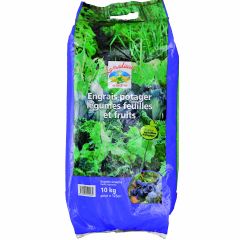
Engrais potager UAB pour légumes feuilles et fruits en sac de 10 Kg
If you prefer an organic fertiliser, you can choose nettle manure, crushed horn, blood meal or guano, as these products are particularly rich in nitrogen.
Fruiting vegetables, such as tomatoes, peppers, aubergines, courgettes, melons, etc. require more potassium. This element supports flowering and fruiting, as well as increasing plants’ resistance to disease and pests.
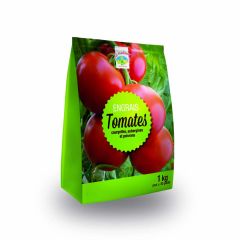
Engrais Tomates NPK 11-10-17 + 3MgO en Mini-pack de 1 Kg
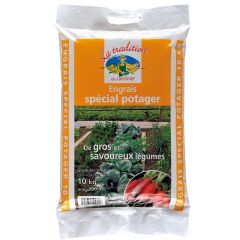
Engrais Spécial potager NPK 10-8-20 SK
For organic fertilisers, we particularly recommend comfrey manure, which has the advantage of being rich in potassium.
These are vegetables for which roots or tubers are eaten. Examples include carrots, parsnips, Jerusalem artichokes, radishes, potatoes… They mainly need phosphorus, since this element promotes growth of the root system.
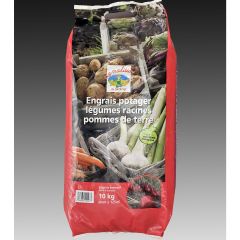
Organic Fertiliser for Root Vegetables and Potatoes in 10kg bag
For organic fertilisers, we recommend bone meal, as it is particularly rich in phosphorus.
Read also
Garden fertiliser: how to choose it?Which fertiliser should you choose depending on its nature?
They are the most nature-friendly fertilisers and preserve garden ecological balance, so should be prioritised. They can be organic (compost, manure, crushed horn, guano, dried blood…), or mineral. The latter are generally sold as granules or sticks. They are easy to use and their constituent elements do not come from chemistry but have been extracted from soil.
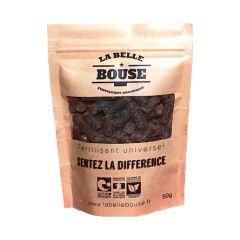
Fertilisant La Belle Bouse - Engrais naturel 100% BIO et local
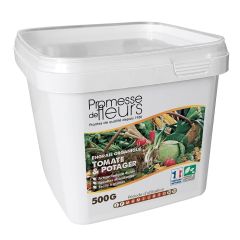
Promesse de Fleurs fertiliser for tomatoes and fruiting vegetables, 500g box

100% worm-compost from Masso Garden in a 3 litre bag
You can also find organic fertilisers such as crushed horn, dried blood, guano, bone meal, fish arista meal…
Discover everything you need to know about pelleted manure as well as our video tips for using it.
They are less natural than previous fertilisers, but when correctly dosed they pose no problem. They should be used in moderation. They are more heavily dosed in mineral elements and are therefore effective at quickly correcting deficiencies or boosting plant growth. They may be liquid or solid (granules, sticks…).
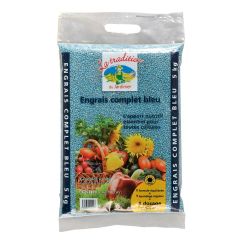
Complete blue fertilizer NPK 12,12,17 + 2 MgO

Engrais Spécial potager NPK 10-8-20 SK
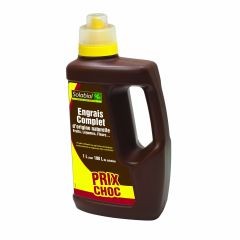
Engrais liquide complet Solabiol
Which fertiliser to choose depending on its presentation?
You can choose a granular fertiliser to spread at the start of spring, before planting your vegetables, then make a few additional applications (liquid or granular fertiliser) during cultivation.
Choose this type of product for vegetables grown in containers, for example on a terrace or a balcony. These fertilisers are perfect for small urban gardens.
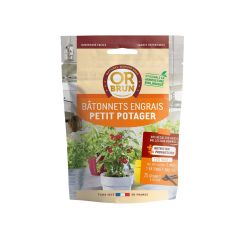
25 Bâtonnets d'engrais Petit potager et tomates Or Brun en sachet refermable
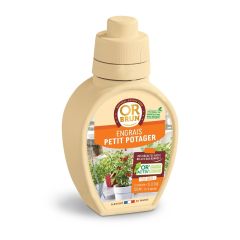
Engrais liquide Petit potager et tomates Or Brun

Engrais Tomates NPK 11-10-17 + 3MgO en Mini-pack de 1 Kg
Also discover Tonnerre d’engrais, a 100% natural fertiliser, space-saving, easy to use and economical. Olivier presents it in video!
They generally act faster than solid fertilisers. However, be careful to follow recommended dosages!

Engrais liquide complet Solabiol

Engrais liquide Petit potager et tomates Or Brun
They decompose more slowly and therefore have longer-lasting effect than liquid fertilisers. There is less risk of overdosing. When preparing soil, spread them on soil and incorporate with light raking.

Engrais complet utilisable en Agriculture Biologique
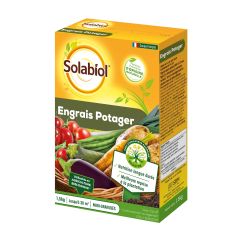
Engrais potager Solabiol

Engrais Spécial potager NPK 10-8-20 SK

Promesse de Fleurs fertiliser for tomatoes and fruiting vegetables, 500g box
Finally, on site, find our full range of fertilisers for vegetable gardens.
Further information
Discover our advice sheet to choose the right fertiliser to fertilise flowerbeds, vegetable gardens, fruit trees, bushes, etc.
- Subscribe!
- Contents
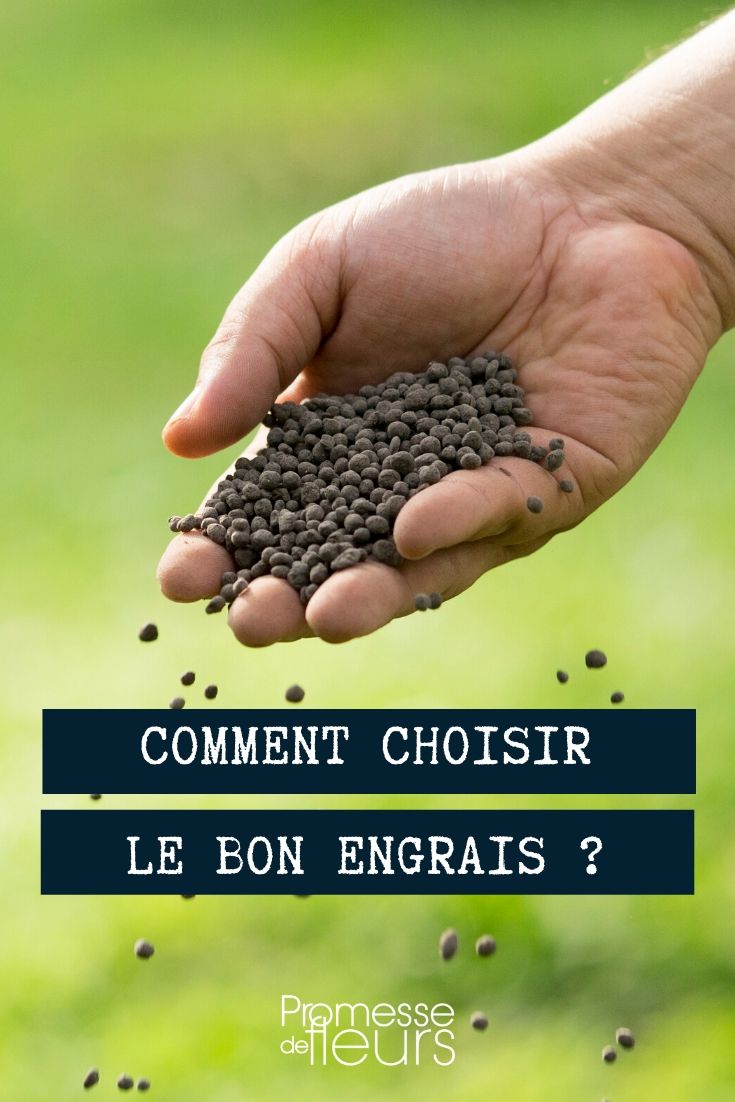






























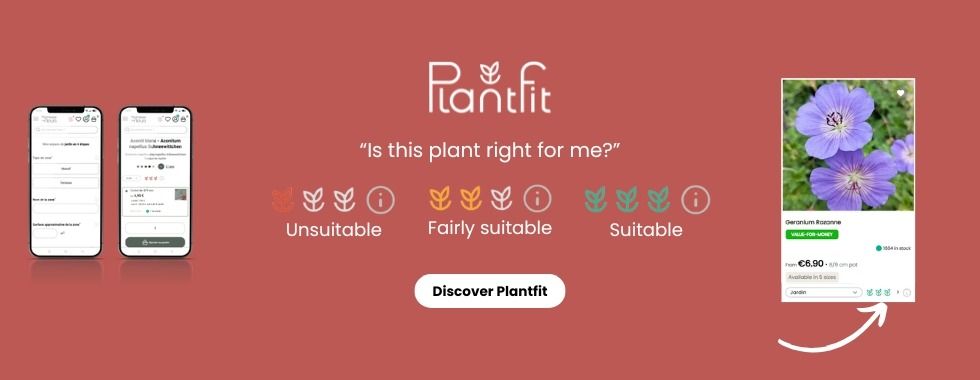
Comments